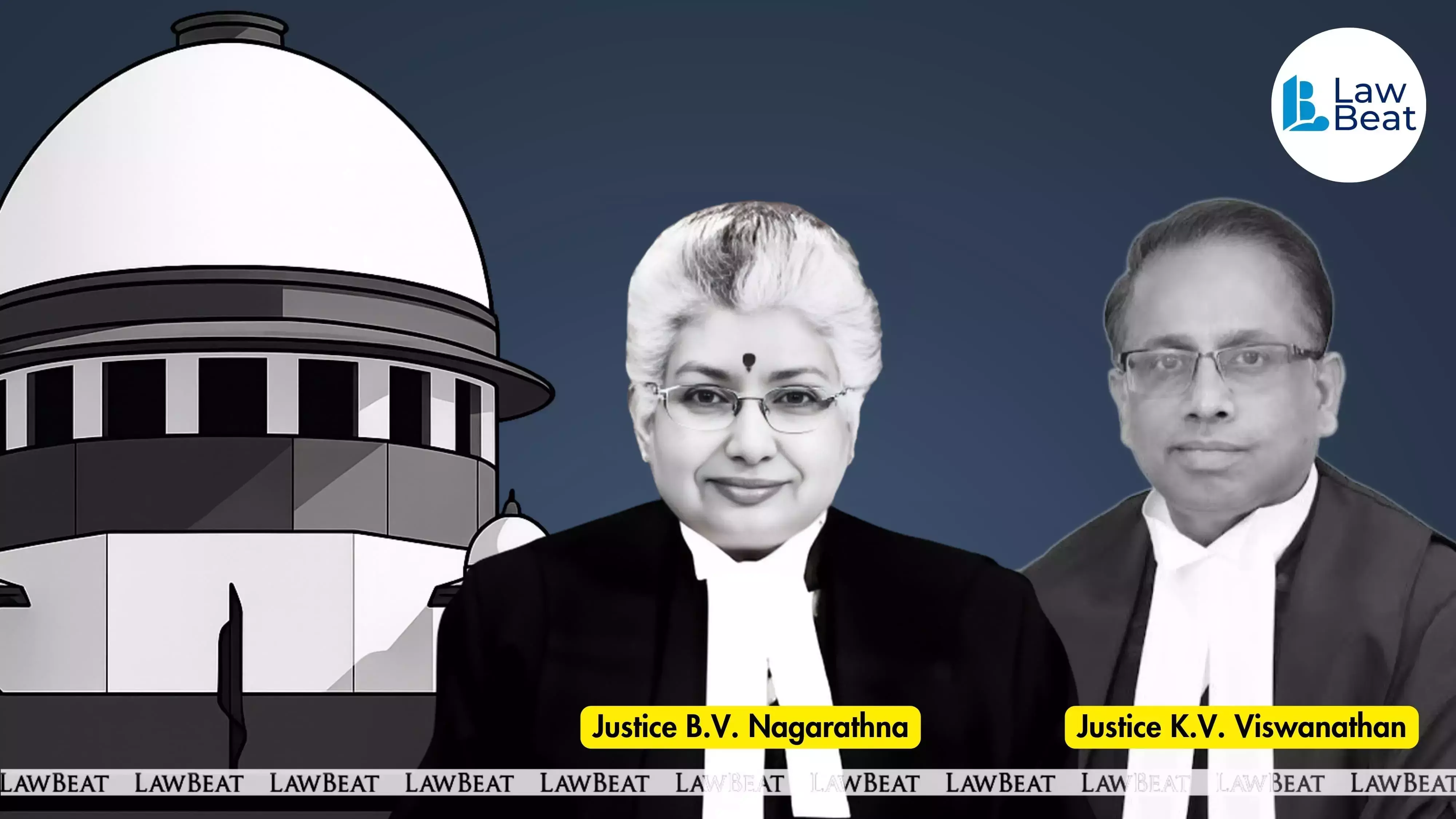SC Affirms Life Sentence for Man Convicted of Raping Minor from Scheduled Caste Community

Awareness of Caste Sufficient for Enhanced Punishment under SC/ST Act, Supreme Court Rules
The Supreme Court on October 14, 2025 upheld the conviction and life sentence imposed on a man for kidnapping and sexually assaulting a minor girl belonging to a Scheduled Caste community.
The Court held that mere knowledge of the victim’s caste was sufficient to attract the enhanced punishment under Section 3(2)(v) of the Scheduled Castes and the Scheduled Tribes (Prevention of Atrocities) Act, 1989.
A Bench of Justices B.V. Nagarathna and K.V. Vishwanathan dismissed the appeal filed by Shivkumar alias Baleshwar Yadav against the June 16, 2023 judgment of the Chhattisgarh High Court, which had affirmed his conviction and sentence by the Special Judge (SC/ST Act), Surajpur.
The trial court had found him guilty under Sections 363, 366, 376 and 506 of the Indian Penal Code, Section 4 of the Protection of Children from Sexual Offences (POCSO) Act, 2012, and Section 3(2)(v) of the SC/ST Act.
The Court noted that the evidence on record clearly established that the accused was well acquainted with the victim and her family before the incident and was aware of their caste status. It found no reason to interfere with the concurrent findings of the trial and appellate courts.
The case arose from a complaint lodged by the victim’s father on May 14, 2018, stating that his minor daughter had gone missing after leaving home to deliver food to her grandfather. He suspected that the accused, a neighbour, had taken her away. During the investigation, the girl was found and stated that the accused had lured her with a false promise of marriage and subjected her to forcible sexual intercourse. She also stated that the accused threatened to kill her if she resisted.
Relying on the testimony of the victim and her family members, the Court held that her account of the incident was consistent, credible, and corroborated by the medical and forensic evidence on record. The medical examination showed a fresh hymenal tear and the presence of semen on the victim’s and the accused’s clothing.
The Bench reiterated that Section 8(c) of the SC/ST Act creates a presumption that if the accused is personally acquainted with the victim or her family, the Court shall presume that the accused was aware of the caste or tribal identity of the victim, unless proved otherwise. It held that this presumption had not been rebutted in the present case.
Citing its earlier ruling in Patan Jamal Vali v. State of Andhra Pradesh (2021) 16 SCC 225, the Supreme Court observed that after the 2016 amendment to Section 3(2)(v), it was no longer necessary to prove that the offence was committed on account of the victim’s caste. Mere knowledge of the caste identity was enough to attract liability under the provision.
The Court also took note of the prosecution’s conduct during trial, remarking that the father of the victim was wrongly declared hostile by the prosecutor without any reason. It said it was increasingly encountering cases where prosecutors sought to treat witnesses as hostile without justification and trial courts allowed such requests mechanically. Emphasizing that the discretion to declare a witness hostile must be exercised judiciously, the Bench said minor inconsistencies or omissions in testimony could not be a basis for such a declaration.
Quoting earlier precedents, including Sri Rabindra Kumar Dey v. State of Orissa (1976) 4 SCC 233 and Gura Singh v. State of Rajasthan (2001) 2 SCC 205, the Court reiterated that cross-examining one’s own witness is an extraordinary measure, permissible only in special cases where the witness exhibits hostility or deviates from material facts. It stressed that small discrepancies could not justify such treatment.
The Court found that the prosecution had successfully proved the age of the victim through school records and testimony of the teacher who produced the admission register. The register showed her date of birth as September 15, 2004, confirming that she was a minor at the time of the incident. The Bench held that there was no reason to doubt this evidence, which had been independently verified by both lower courts.
Rejecting the appeal, the Supreme Court said it was satisfied with the concurrent findings that the victim was kidnapped for illicit intercourse, subjected to forcible sexual assault, and intimidated, all while the accused was aware of her caste identity. It held that the conviction and sentence imposed under the relevant provisions of the IPC, POCSO Act, and SC/ST Act were legally sound and did not warrant interference.
Case Title: Shivkumar @ Baleshwar Yadav v. The State of Chhattisgarh
Bench: Justices B.V. Nagarathna and K.V. Vishwanathan
Date of Judgment: October 14, 2025
